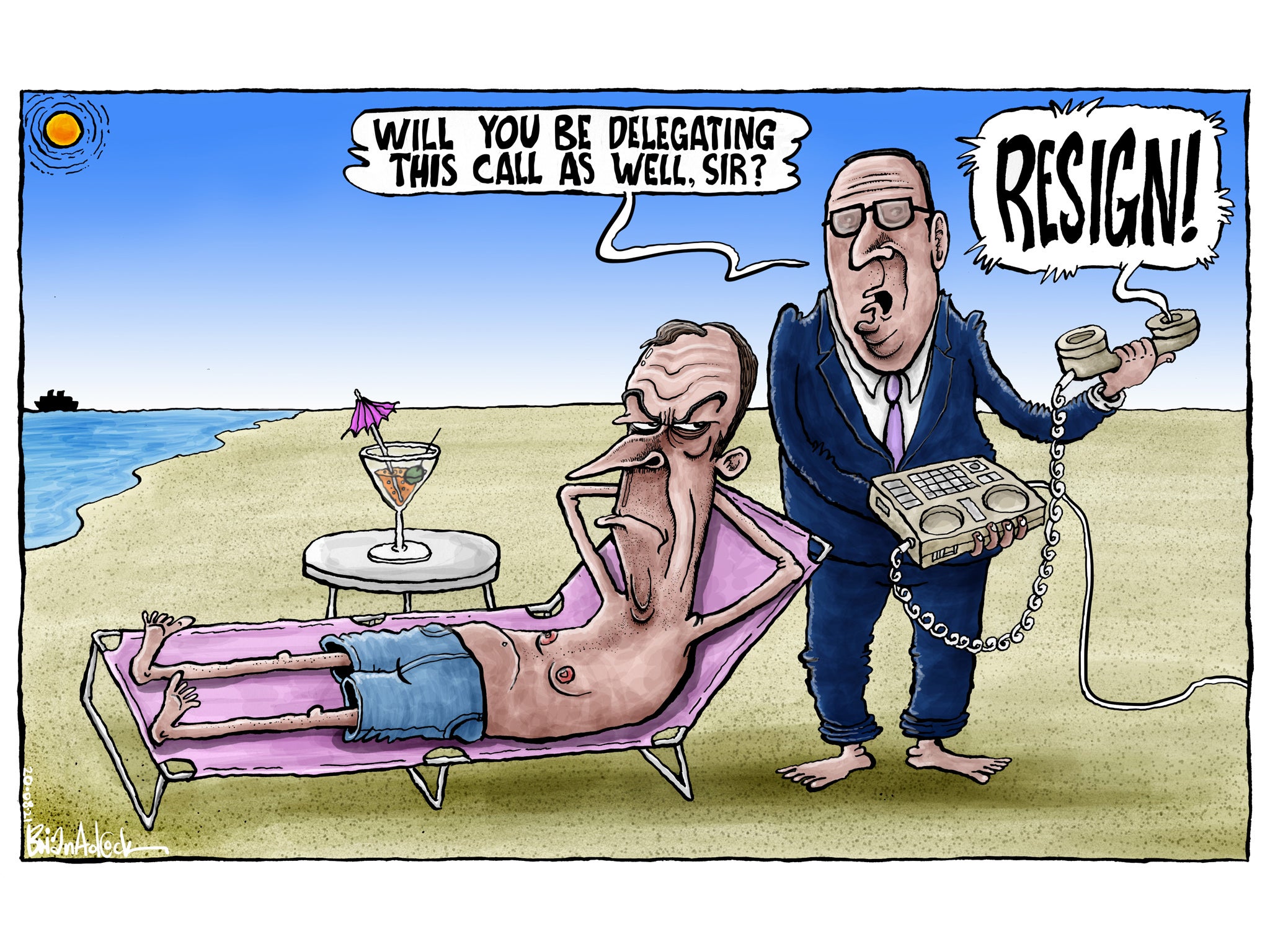Matt Hancock may have quit under pressure, but Dominic Raab won’t go so easily
Editorial: The foreign secretary will most likely stay, though he hardly deserves to. His behaviour over the Afghanistan phone call fell far short of the standards required by someone in his position

When Dominic Raab answered “no” to reporters yelling at him outside Downing Street – a very rare breakthrough for the resident shouters – about whether he was going to resign, he was (probably) quite right. Ministers tend not to resign from the Johnson government, or get sacked, whatever they get up to. Even Matt Hancock was encouraged to “tough it out” after his close personal relationship with a paid adviser was revealed, until he realised that his best interests would not be served by lingering on until Boris Johnson got round to ditching him to save his own skin. For Mr Hancock, resigning as health secretary, apparently in honour, gave him at least a slim chance of rebuilding his political career.
The foreign secretary’s calculations are different. He is more secure, more senior, and more difficult to sack, despite everything. Mr Johnson in any case generally dislikes giving the opposition a “scalp”, and calls by Labour for a minister to quit can actually strengthen their position, if only in the short-term. That was another reason why Mr Hancock wasn’t immediately required to go. Labour leader Keir Starmer was probably being mischievous when he said that Gavin Williamson should be removed from his post, but it probably bought the education secretary a little more time and took the immediate heat off him, though he still looks doomed. Much the same goes for Mr Raab.
The prime minister is not going to force him out just because Lisa Nandy is angry, or even because Tory backbenchers are in despair about this Afghan fiasco. Like the home secretary Priti Patel, who came under similar intense pressure after bullying allegations were upheld, he regards losing such a senior minister as Mr Raab at the behest of the opposition parties as an unacceptable intrusion on his God-given prerogatives. Besides, he has survived enough criticism about his own misdemeanours to think that he can get away with it.
So Mr Raab will stay, though he hardly deserves to. His behaviour in recent days has fallen far short of the standards required by someone in his position. With such high status, perks and indeed salary and prospects for a lucrative post-political career, comes great responsibilities. Foreign ministers can never be entirely on holiday, because of the nature of the job.
By all accounts, Mr Raab didn’t spend all his time on the sun lounger or poking around the antiquities of Crete, but his failure to make one call his staff advised him to, to his opposite number in Kabul, was a dereliction of duty. At that time, in those circumstances, it should not have been delegated to Zac Goldsmith, the minister of state. As it happens, the Foreign Office was unable to say when the call did take place, but by then it was probably too late anyway. Mr Raab was unwise to be away at such a crucial moment anyway, and he has made himself sound foolish by pleading that “no one saw this coming”.
The secretary of state for defence, Ben Wallace, who is currently acting as secretary of state for the defence of Dominic Raab, says that the call would not have made any difference even if Mr Raab had made it in a timely way. Perhaps – but the point is that Mr Raab had a professional and moral obligation to try, and it was hardly an onerous task. He failed in his duty. There should be consequences.



Join our commenting forum
Join thought-provoking conversations, follow other Independent readers and see their replies
Comments